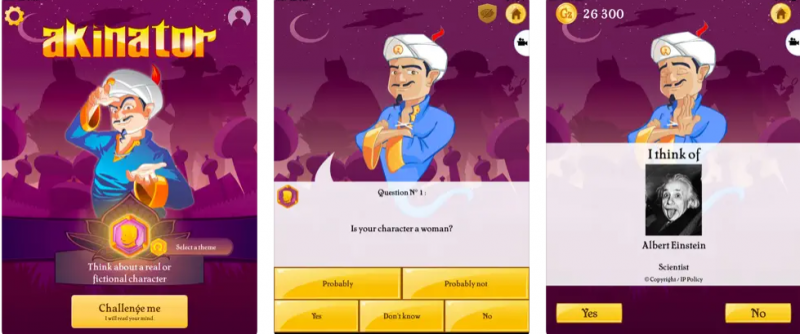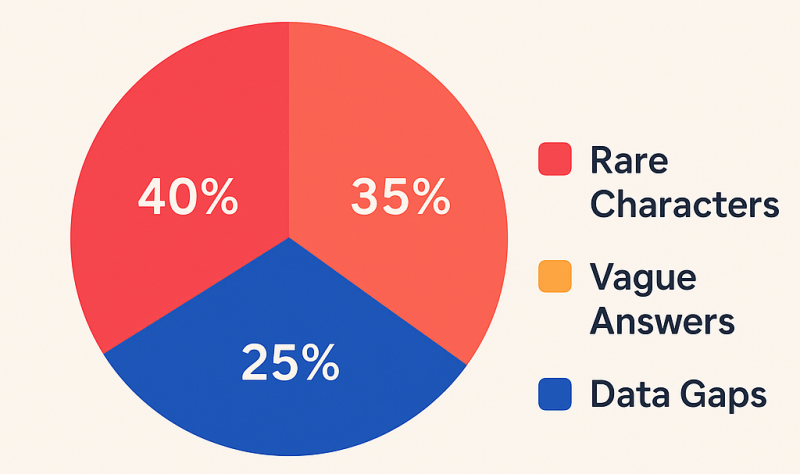Table of Content
- What Is Akinator, Really?
- How Akinator’s Database Grows Over Time
- The Game’s Algorithm: Decision Trees, Crowd-Learning & Fuzzy Logic
- Why Akinator Sometimes Fails, And What That Teaches Us
- Platforms, Versions & Accessibility: Web, iOS, Android
- Privacy, Safety & Kid-Friendly Use: What Parents Should Know
- Tips to Get the Most Out of Akinator (And When to Stop)
- Future of “Guess-the-Character” Tech: What Akinator Suggests
- Final Thoughts
If someone told you a genie could guess what you’re thinking, you’d probably laugh, until you meet Akinator, the online character-guessing game that claims to read your mind through a series of simple yes-or-no questions. The secret? A powerful algorithm, massive crowdsourced data, and a pinch of psychology.
Let’s explore how this seemingly magical game really works and why it’s both fascinating and occasionally flawed.
What Is Akinator, Really?
In essence, Akinator is a web-based guessing engine developed by the French company Elokence. You think of any real or fictional character, from Elon Musk to SpongeBob, and the animated genie will ask a string of questions to figure out who it is.
Each response (“Yes,” “No,” “Probably,” “Don’t know”) feeds Akinator’s knowledge graph, narrowing the pool until it lands on your pick. The developers claim it relies on dynamic probability trees that evolve with every new user session.
The beauty of the design is that it’s cross-platform: you can play on the Akinator Android app, the Akinator iOS version, or even via Yandex Games.

Now that we know what Akinator does on the surface, let’s dive into how it actually “thinks.”
How Akinator’s Database Grows Over Time
The secret to Akinator’s eerie accuracy lies in its ever-expanding database. When it fails to guess your character, the genie politely asks you to add that name, effectively crowdsourcing its next win. Over millions of plays, this user input becomes a goldmine of relational data.
Every new addition improves the probability mapping between questions and answers. For instance, when multiple users confirm that a “bald cartoon scientist” is Rick Sanchez, Akinator’s algorithm begins prioritizing that link earlier in the decision chain.
This evolving dataset feeds directly into the next layer, Akinator’s decision tree and learning model.
The Game’s Algorithm: Decision Trees, Crowd-Learning & Fuzzy Logic
Akinator’s magic isn’t sorcery, it’s smart computing. Developers and tech communities suggest it runs on a fuzzy logic expert system that continually learns from user feedback. That means instead of strict yes/no elimination, it weighs probabilities.
According to community discussions on Reddit and Stack Overflow, every question you answer essentially halves the possible pool of candidates, refining its “mental model.” It’s a bit like binary search meets 20 Questions, scaled up with global data.
Suppose you say your character “is real,” “is a musician,” and “was active in the 80s.” Those tags instantly push Akinator toward figures like Madonna or Michael Jackson, not Iron Man or Sherlock Holmes.
Of course, no system is perfect, and sometimes, Akinator’s guesses go hilariously wrong.
Why Akinator Sometimes Fails, And What That Teaches Us

Even the most advanced systems stumble. When Akinator misses your pick, it’s often because:
- The character is too niche (e.g., a local meme or obscure figure)
- Your answers were ambiguous or contradictory
- The data pool hasn’t seen that name enough times to form patterns
Interestingly, those “fail moments” are exactly how Akinator learns; every error is a feedback loop that strengthens its logic. The platform even says that “your contributions help the genie grow wiser,” reinforcing the crowdsourced AI model.
That balance between fun and learning keeps players hooked and also opens a conversation about platform reach.
Platforms, Versions & Accessibility: Web, iOS, Android
The official Akinator website remains the simplest way to play, but the genie has spread everywhere, from mobile apps to voice assistants and smart TVs. The Android version is free-to-play with ads, while the iOS counterpart offers in-app purchases for ad removal and bonus content.
You can also play Akinator on Yandex Games or watch gameplay compilations on YouTube, proof that the app has evolved beyond just “a browser game.”
With this reach, it’s worth asking: is Akinator always safe, especially for younger players?
Privacy, Safety & Kid-Friendly Use: What Parents Should Know
While Akinator seems harmless, it occasionally drifts into mature territory. According to SafetyDetectives, the game is best suited for users 12 and older, as its database includes adult figures and unfiltered questions.
The Common Sense Media privacy review notes some data-collection concerns, and Reddit threads cite instances where Akinator asked inappropriate or NSFW questions.
Parents are advised to enable “child mode” or supervise sessions. Suppose your child plays unsupervised and the algorithm references an adult topic, that could raise questions you’d rather avoid.
Knowing this, responsible play and parental controls make all the difference, especially as curiosity fuels Akinator’s fun.
Tips to Get the Most Out of Akinator (And When to Stop)
Akinator works best when you:
- Answer clearly — vague responses slow it down.
- Avoid tricking the system — misleading answers confuse the logic tree.
- Experiment with rare characters — this helps grow its dataset.
- Use child-safe mode for younger players.
If you notice repetitive or frustrating questions, it may help to refresh the page or switch to the desktop version of Akinator where question branching is faster.
As Akinator refines its algorithms, these small user habits shape how smart it gets over time.
Future of “Guess-the-Character” Tech: What Akinator Suggests
What Akinator demonstrates, beyond its fun factor, is how machine learning, crowdsourced intelligence, and gamification can blend into one interactive experience. The concept parallels modern AI chatbots like ChatGPT or 20Q neural models, where user input fine-tunes responses continuously.
Suppose we extend this model to other domains, customer support, mental health apps, or even virtual education, we might see more systems “learning by guessing.”
It’s a fascinating peek at where interactive AI could go next, powered not by magic, but by collective human behavior.
Final Thoughts
Akinator isn’t mind-reading, it’s mathematics, psychology, and user data dressed in a genie’s robe. It claims to know your thoughts, but what it’s really doing is pattern-matching across an enormous decision tree shaped by millions of players worldwide.
The fun lies in watching logic feel like intuition. And whether you’re playing on your phone or desktop, Akinator proves something simple yet profound: sometimes, algorithms know us better than we expect, because we’ve taught them how to think.
Post Comment
Be the first to post comment!





